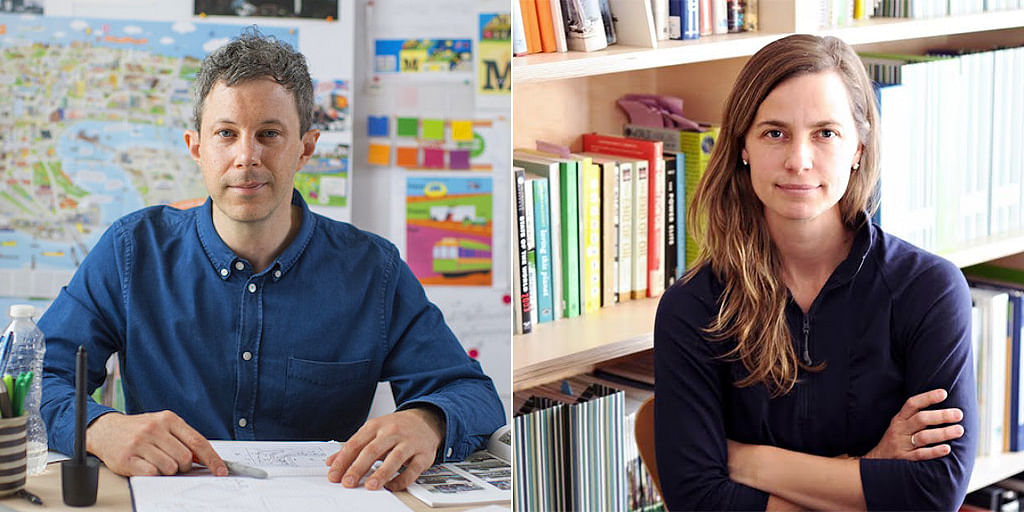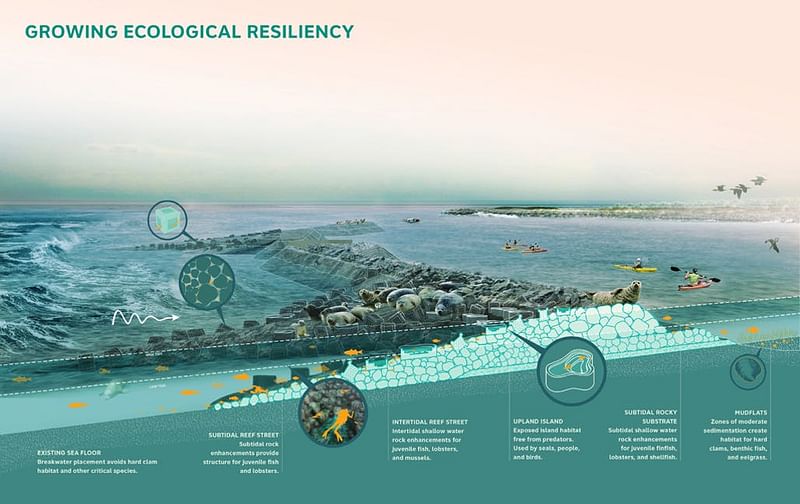Kate Orff and Damon Rich awarded 2017 MacArthur 'Genius' Grant, but Urban Design was the real winner
By Mackenzie Goldberg|
Wednesday, Oct 11, 2017

Related
The 2017 MacArthur fellows have been revealed, and among the honorees are landscape architect Kate Orff and urban planner Damon Rich. In total, 24 creative thinkers, each at the top of their respective fields ranging from math and science to anthropology and fine arts, have been awarded a $625,000 grant to continue their work. Past industry recipients of the fellowship, also known as the 'Genius' grant, include architectural heavy-hitters such as Jeanne Gang and Elizabeth Diller.
Each grantee has been selected for having shown extraordinary originality and dedication in their creative pursuits. "Their work gives us reason for optimism and inspires us all" said Cecilia Conrad, Managing Directory at the MacArthur Fellows Program. Orff and Rich both work within the fields of urbanism and share a focus on improving the public realm.
Orff—who is the first landscape architect to receive the fellowship—is best known for her eco-sensitive approach that integrates urban design, landscape design, and architecture in order to address issues of climate change, loss of biodiversity, resiliency, and culture. Her landscape architecture firm, the New York-based SCAPE, and her research practice are both focused on finding practical solutions to ecological problems facing cities.

In NYC, one of her proposed projects, which will begin construction in June 2018, involves a series of oyster reefs along Raritan Bay that filter polluted water while mitigating coastal flooding. The project won funding from the Rebuild by Design competition, sponsored by the U.S. Department of Housing and Urban Developments, that sought innovative defenses for NY in response to Superstorm Sandy.
Her work ranges from future-focused conceptual projects to more immediate built works. Current projects also include redesigning Lexington, Kentucky’s Town Branch creek and fashioning a Minneapolis park along the Mississippi River. Beyond, Orff has also served as the director of Columbia GSAPP's Urban Design Program since 2015, where she recently brought Damon Rich, fellow 'Genius' grant recipient, to teach a seminar titles "Contested Sights: Urban Design in the Wild" which looks at how architecture and planning become controversial, and how architects and urban designers can learn from that.

Rich founded the Center for Urban Pedagogy, a non-profit that encourage and facilitates residents participating in urban design, in 1997. Since then, he has served as the planning director of Newark, New Jersey from 2008 to 2015, and co-founded the urban design and civic arts studio Hector thereafter. Rich’s projects range from parks and other public spaces to neighborhood plans and civic-education projects; work includes the current redesigning of a 100-year-old park in Philadelphia and the recent exhibition at the Yerba Buena Center for the Arts, in San Francisco, on contested and conflicted stories of urban development.
According to the foundation, Rich creates "vivid and witty strategies to design and build places that are more democratic and accountable to their residents." "Trained as an architect, he is committed to enlivening bureaucratic systems and applies a democratic approach to a wide range of projects" they added.
Beyond Orff and Rich, the Foundation honored a number of urbanism-adjacent professionals changing the shape of cities. The work of these fellow honorees center around issues of disinvestment, migration, and unaffordability, such as that of Nikole Hannah-Jones, a writer for the New York Times chronicling urban segregation, or that of Rami Nashabi, a community leader in Chicago working in distressed neighborhoods. This overwhelming recognition of the field of urban design by the MacArthur Foundation, as Rich points out, highlights the urgent contemporary tensions in the governance of planning and development as well as the potential of design practices springing from more politically and culturally informed approaches.

Share
0 Comments
Comment as :